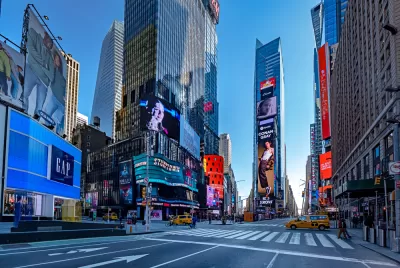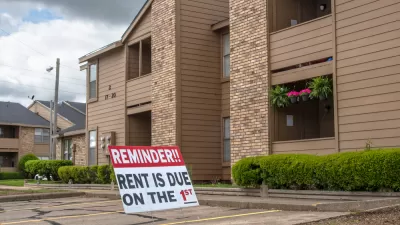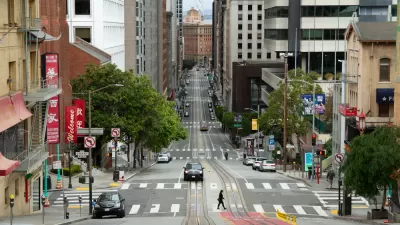The decrease in U.S. economic activity during the pandemic year of 2020 reduced the country's greenhouse gas emissions by 10.3 percent.

Rhodium Group has released its preliminary report on U.S. greenhouse gas emissions for 2020, estimating a dramatic decrease in emissions during the pandemic year.
Kate Larsen, Hannah Pitt, and Alfredo Rivera write an article for the Rhodium Group to explain the report's preliminary estimations, noting at the aperture that 2020 was an unusual year: limiting the spread of infection produced a historic shock to the U.S. economy and a 10.5 percent reduction in greenhouse gas emissions.
"That is the single largest drop in annual emissions in the post-World War II era, outpacing the Great Recession of 2009 when emissions dipped 6.3%," according to the article. The decline also lowers GHG emissions in the United States below 1990 levels for the first time. "With emissions down 21% below 2005 levels, this means the US is expected to far exceed its 2020 Copenhagen Accord target of a 17% reduction below 2005 levels."
The Paris Accords are intended to prevent economic collapse (by way of environmental collapse), so the writers caution against considering 2020 a down payment on the country's progress in meeting worldwide climate goals.
"With coronavirus vaccines now in distribution, we expect economic activity to pick up again in 2021, but without meaningful structural changes in the carbon intensity of the US economy, emissions will likely rise again as well."
The same report released in January 2020 found increased greenhouse gas emissions for the first time after three years of decline. In summer of 2020, Rhodium Group also released a report calculating the economic damage that achieved greenhouse gas emission reductions.
FULL STORY: Preliminary US Greenhouse Gas Emissions Estimates for 2020

Alabama: Trump Terminates Settlements for Black Communities Harmed By Raw Sewage
Trump deemed the landmark civil rights agreement “illegal DEI and environmental justice policy.”

Study: Maui’s Plan to Convert Vacation Rentals to Long-Term Housing Could Cause Nearly $1 Billion Economic Loss
The plan would reduce visitor accommodation by 25% resulting in 1,900 jobs lost.

Planetizen Federal Action Tracker
A weekly monitor of how Trump’s orders and actions are impacting planners and planning in America.

Waymo Gets Permission to Map SF’s Market Street
If allowed to operate on the traffic-restricted street, Waymo’s autonomous taxis would have a leg up over ride-hailing competitors — and counter the city’s efforts to grow bike and pedestrian on the thoroughfare.

Parklet Symposium Highlights the Success of Shared Spaces
Parklets got a boost during the Covid-19 pandemic, when the concept was translated to outdoor dining programs that offered restaurants a lifeline during the shutdown.

Federal Homelessness Agency Places Entire Staff on Leave
The U.S. Interagency Council on Homelessness is the only federal agency dedicated to preventing and ending homelessness.
Urban Design for Planners 1: Software Tools
This six-course series explores essential urban design concepts using open source software and equips planners with the tools they need to participate fully in the urban design process.
Planning for Universal Design
Learn the tools for implementing Universal Design in planning regulations.
Caltrans
Smith Gee Studio
Institute for Housing and Urban Development Studies (IHS)
City of Grandview
Harvard GSD Executive Education
Toledo-Lucas County Plan Commissions
Salt Lake City
NYU Wagner Graduate School of Public Service





























